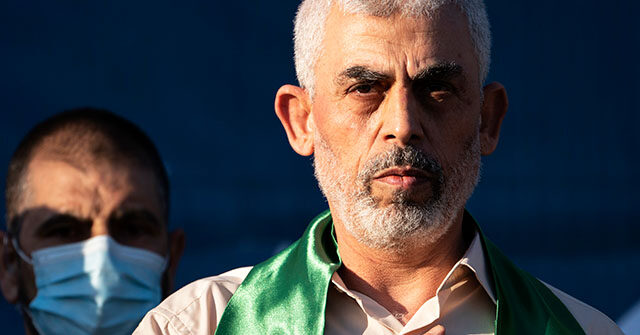The recent death of Yahya Sinwar, the Hamas leader, marks the end of a notorious trajectory in the realm of terrorism. Sinwar’s reign was marked by a plethora of heinous acts that impacted both Israelis and Palestinians, drawing criticism not only from the international community but also from the ordinary people he purported to lead. Following his demise, it remains to be seen if the people of Gaza will view him as a martyr or merely a figure of fear and oppression. Sinwar’s tumultuous life began in 1962 in a Gaza refugee camp, shaped by his family’s displacement during the 1948 Arab-Israeli War. His radicalization was sealed in university, under the influence of Sheikh Ahmed Yassin, the co-founder of Hamas, whose ideology intertwines Islamic supremacy with Palestinian grievances, advocating that “there is no solution to the Palestinian problem except through jihad.”
Sinwar’s career was primarily defined by his leadership of the Majd, Hamas’s internal security apparatus, a role that saw him order the torture and execution of suspected Palestinian collaborators. His reputation as the “Butcher of Khan Younis” stemmed from his brutal methods, including a particularly gruesome act of murder where he strangled a man and buried him alive. His crimes eventually led to his imprisonment in Israel in 1988, where he received four life sentences after admitting to the torture and murder of twelve Palestinian collaborators, alongside the killings of two Israeli soldiers. While incarcerated, Sinwar learned Hebrew and wrote an autobiographical novel, yet his experiences did not soften his hatred or instill compassion toward his adversaries, as evidenced by his later interactions with Israeli medical staff who treated him during a bout of brain cancer.
Despite being imprisoned, Sinwar’s influence within Hamas continued to grow. He was released in a controversial 2011 prisoner swap, trading 1,027 Palestinian prisoners for the kidnapped Israeli soldier Gilad Shalit, an operation orchestrated by his brother, Muhammad. Shortly after his release, Sinwar married and re-engaged in Hamas’s political activities, showing no signs of humanitarian intent. He quickly resumed his violent tactics, contributing to the internal purges within Hamas, which included the execution of military commander Mahmoud Rushdi Ishtewi under dubious charges, revealing the cutthroat dynamics at the organization’s leadership level.
As Sinwar consolidated power, he assumed the position of head of the Hamas political bureau in Gaza in 2017 and was re-elected in 2021. His leadership coincided with a sharpened rhetoric against Israel. In a provocative televised speech following a previous confrontation between Israel and Hamas, he taunted Israeli leaders with a chilling message of invulnerability, suggesting that they would fail to assassinate him. This growing aggressiveness perfectly aligned with a pronounced shift in Hamas’s operational posture leading up to the catastrophic October 7, 2023 attack, referred to by Hamas as “Operation Al-Aqsa Flood.” His strategic planning of this assault has drawn a direct link between Sinwar and the violence that ensued, with Israeli security attributing significant portions of the attack’s orchestration to him.
The consequences of Sinwar’s actions are dire, reflected in U.S. charges against him for terrorism and conspiracy, stemming from the consequences of the October 7 massacre, which claimed over 40 American lives. Attorney General Merrick Garland emphasized that Sinwar’s overarching leadership in orchestrating violence placed the national security of the United States at risk. Beyond his harms to Americans, Sinwar’s legacy may be one of unparalleled devastation among Palestinians; it is alleged that he could be responsible for more Palestinian deaths than any of his contemporaries. His callous approach to the collateral damage inflicted upon his own people was starkly revealed in a letter he penned, where he rationalized civilian casualties as “necessary sacrifices” vital to the Palestinian struggle, inferring a willingness to accept massive loss in pursuit of ideological supremacy.
In light of Sinwar’s death, a complex narrative emerges regarding his role, not just as a leader of Hamas, but as an embodiment of violence and oppression in the region. His passing raises critical questions on the future direction of Hamas and the sentiments within Gaza. The residents may not feel compelled to deify a man whose leadership was laden with bloodshed and tyranny. The legacy of Yahya Sinwar is one defined by a brutal commitment to his cause at extraordinary human cost, engendering an environment riddled with fear and despair that arguably ties to the decline of Palestinian aspirations for sovereignty and peace. This legacy, particularly within Gaza, will echo through subsequent political developments and humanitarian crises, as the region continues to grapple with the far-reaching fallout of Sinwar’s reign.

